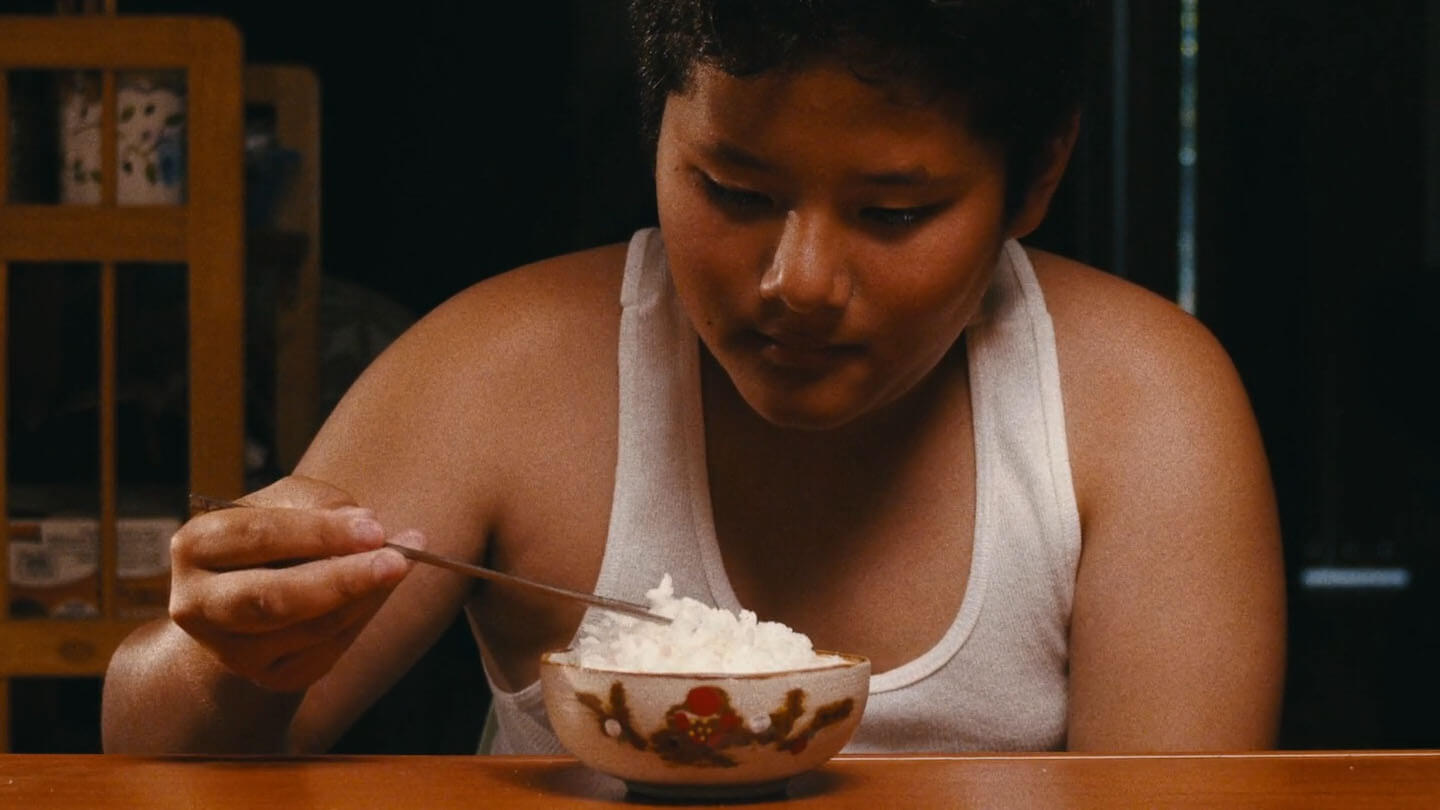Alex K. E. Ching and Devan Yukio Fujinaka’s Kotsuage, written by Fujinaka, is beautiful in a way that almost instantly draws out sorrow from within you before it even begins to narrate or justify a cause. A brief, fragmentary glimpse into a man’s childhood, it picks through the confounding years for its most significant pieces.
Consequently, the narrative has a gravity to it, telegraphed in the profound score and editing. An impression emerges: an experience that lives within the distancing confines of memory, and simultaneously a dream world from which one cannot ever fully awaken.
Thus the camera opens up this world from behind the veil of memory in 4:3. Fascination with the beauty of the world mingles with an aversion to its brutality. The very first view we have of the boy (Logan Noguchi) is as a pair of aimlessly running feet. He sees and keeps his eyes away from what he should never have seen, and certainly cannot but be fundamentally altered by it. It halts the narrative as if to let him move away from it. And yet it is not enough. The boy is touched by ugliness regardless. What initially appears to be an unconnected glimpse of a fond memory reveals itself to be the monster that took shape and will never vacate the walls of his mind. The cruelty must be borne with, swallowed quietly, and if he can stomach it, even expressed gratitude for. But the boy, silent though he is, takes off a layer of the tainted rice before he can eat it.
Ko Tanaka narrates as the old man reminiscing about his tender years, in poetic recollections that alternate between universal and specific memories of being a child with all his senses hungry for the world. When the man speaks of the demons we hope to turn into heroes as children, it loosens the imagination to everything we know children can and do experience. Destruction and trauma come to dominate the boy’s perception of the world. Does the war figure into it? Likely. A bad father certainly does.
Watch Kotsuage Short Film Trailer
Kotsuage: Bitterness, Hope, and Profundity at the Close of the Day
-
Direction
-
Cinematography
-
Screenplay
-
Editing
-
Music
